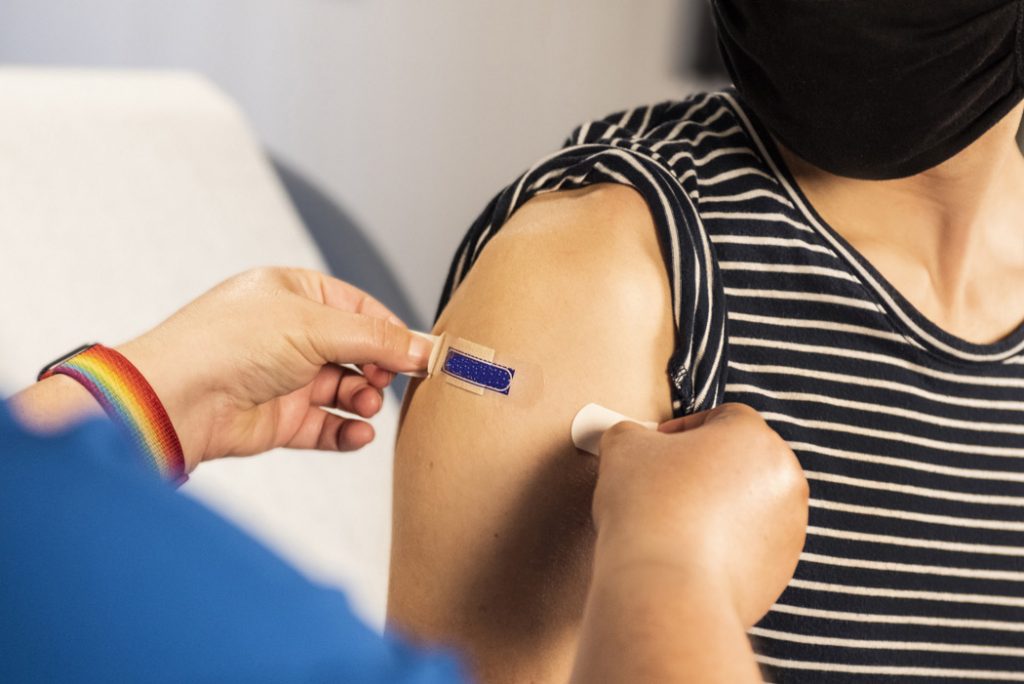
A friend came by to drop off a camera lens he had borrowed. He knocked and left the lens on the doorstep. I came to the door as he was heading down the walk. He was masked and had already walked 30 feet away, obviously intent on staying there.
“Why don’t you just get vaccinated?” I asked him.
“Because some people die from the vaccines and I’ve heard that you can still get Covid anyway even if you’re vaccinated, so it doesn’t do any good.”
Let’s talk about assessing risk.
Breakthrough infections—the term used when the fully vaccinated get the disease anyway—are extremely rare. How rare? So far 130 million Americans have been fully vaccinated and there have been 10,000 recorded breakthrough infections. That works out to a 0.0076 percent chance of getting a breakthrough infection—a pretty tiny percentage. And it’s not nearly as tiny as the number of deaths attributed to the vaccine. We’re talking less than 10, so the percentage goes to something like 0.0000009 percent. How rare is this? Consider that the average number of people hit by lightning every year is 49, which is at least 5 times the number of deaths from Covid vaccinations.
But 600,000 Americans have died from Covid. Meanwhile, there is potentially a big cost from deciding against getting the vaccine. Maybe, like me, you are fully vaccinated and you know people who are not. Maybe you have also heard the myriad reasons that the vaccine reluctant don’t want to get vaccinated. Some of the reasons I’ve heard are fundamentally not bad ones, but based on false information—and others are downright bizarre. But all of them are threatening the economic well-being of the United States.
As I write this in early June, over 60 percent of Americans have received at least one shot. Infection rates are crashing, which the anti-vax crowd is largely ignoring or brushing away.
There’s a hope that the virus will become less lethal over time, and that at some point we will have been sufficiently exposed to reach a state of herd immunity, in which enough people have antibodies to fight the disease so that it can’t find openings to spread and propagate. The problem is, no one seems to know exactly what percent of the population needs to have personal immunity before we reach herd immunity.
And our enemy, the virus, is not waiting as it continues to mutate into other, even more contagious versions of itself.
So far our vaccines have shown to be resistant to these new strains of the Coronavirus. But among the unvaccinated, the virus can find new people to infect as well as fertile ground for mutations.
All of this means that there is a possibility that the U.S. will fall behind other countries that have greater vaccine acceptance. The economic cost of vaccine resistance is potentially trillions of dollars. Admittedly, this would be the worst case scenario. But what is certain is that we are returning to normalcy slower than we could be, and that has a large cost.
When the economy is not fulfilling its potential, the government is not collecting as much in taxes as it could, creating larger than necessary deficits and hindering its ability to provide services in the future.
The vaccine reluctant think they have a right to refuse the vaccine, and technically they do. There is a very long conversation in this country between individual rights and the common good, going back to the founding of the country and before. I highly doubt we will ever find a perfect solution.
We as a nation, and as a species, are fighting a war against a deadly disease. The cost of vaccine reluctance is not isolated to those who choose to accept the risk of getting sick over getting vaccinated, because every vaccine-reluctant person increases and prolongs the detrimental effects of this virus for all of us.
Hal Masover is a Chartered Retirement Planning Counselor and a registered representative. His firm, Investment Insights, Inc is at 508 N 2nd Street, Suite 203, Fairfield, IA 52556. Securities offered through, Cambridge Investment Research, Inc, a Broker/Dealer, Member FINRA/SIPC. Investment Advisor Representative, Cambridge Investment Research Advisors, Inc., a Registered Investment Advisor. Investment Insights, Inc & Cambridge are not affiliated. Comments and questions can be sent to hal.masover@emailsri .com. These are the opinions of Hal Masover and not necessarily those of Cambridge, are for informational purposes only, and should not be construed or acted upon as individualized investment advice. Investing involves risk. Depending on the types of investments, there may be varying degrees of risk. Investors should be prepared to bear loss, including total loss of principal. Past performance is no guarantee of future results.
Indices mentioned are unmanaged and cannot be invested in directly.
